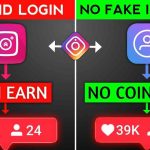The world of academia, often perceived as a realm of enlightenment and intellectual growth, is not immune to its share of controversies and legal battles. One such contentious case is the lawsuit initiated by Dr. Chan-Wook Park, commonly known as C.W. Park, against the University of Southern California (USC). This legal action has raised eyebrows, ignited debates, and shone a spotlight on the complex issues surrounding academic institutions.
Dr. Park’s Claims
Dr. Chan-Wook Park’s journey at USC was nothing short of remarkable. Beginning in 2002 as an associate professor at the School of Cinematic Arts (SCA), he rapidly climbed the academic ladder, achieving the prestigious position of a full professor in 2014. His contributions as a filmmaker and educator earned him numerous accolades and honors.
However, in 2016, Dr. Park’s USC career took an unexpected turn when he was abruptly removed from his role as the chair of SCA’s film production division without any clear explanation. This decision puzzled many, considering Dr. Park’s extensive track record of achievements and endorsements from students and peers.
In response to his perplexing termination, Dr. Park filed a complaint with USC’s Office of Equity and Diversity (OED), alleging discrimination based on his racial and national origin, as he is of Korean-American descent. He further contended that this discrimination was part of a broader pattern affecting other Asian-American faculty members at USC. While OED acknowledged diversity and inclusion challenges within SCA, they did not substantiate Dr. Park’s claims of targeted discrimination against him.
Background of the Lawsuit
The controversy surrounding Dr. C.W. Park’s tenure at USC erupted in 2017 when seven female graduate students accused him of sexual harassment and retaliatory actions. These alleged incidents spanned several years, beginning in 2006 and continuing through 2015. The students accused Dr. Park of inappropriate conduct, including making sexually suggestive comments, sending explicit text messages, and pressuring them for sexual favors. They claimed to face retaliation when they rebuffed his advances or reported his behavior.
USC retained Dr. Park as a faculty member until his retirement in June 2018, a decision that generated concern among students and faculty. Many believed USC had failed to take appropriate action against a well-known professor accused of abusing his power.
In response to the outcry, USC initiated a Title IX investigation into Dr. Park’s conduct. However, before any disciplinary actions could be taken, Dr. Park filed a defamation lawsuit against USC in July 2018. He maintained that USC’s management of the Title IX investigation had damaged his reputation and career prospects by portraying him as a predator or serial harasser without factual basis.
Who is C.W. Park?
C.W. Park, also known as Chun Woong Park, was an integral member of USC’s academic community. His journey transcends international borders, as he was born and raised in South Korea before pursuing higher education in the United States.
Park’s academic journey began at a community college, from which he transitioned to USC, culminating in his attainment of a bachelor’s degree in electrical engineering. He then secured a master’s degree in computer science from Stanford University. In 2004, he returned to USC as an assistant professor at the Viterbi School of Engineering, where he later achieved tenure and ascended to the position of associate professor. However, he claimed to have experienced racial discrimination and harassment from colleagues and superiors during his tenure, including being passed over for promotions and denied professional advancement based on his ethnicity.
Despite raising these concerns with university authorities, including formal complaints, USC allegedly took inadequate measures to address the issues, prompting Park to pursue legal action against the university to seek redress for the discrimination he experienced.
What was their role at USC?
Dr. C.W. Park held a multifaceted role at USC as a professor and researcher in the field of marketing. His association with USC began in 1996, and he transitioned to a full-time faculty position within the Marshall School of Business in 2005.
Park’s primary responsibilities included instructing both undergraduate and graduate-level courses related to marketing and consumer behavior. Over his tenure at USC, he played a pivotal role in teaching classes such as Marketing Management, Consumer Behavior, Advertising Strategy, and Market Research.
Additionally, Park undertook several administrative roles within the university, including serving as the Faculty Director for the Masters of Science in Marketing Program from 2005 to 2012, where he oversaw curriculum development and student recruitment.
Furthermore, Park significantly influenced research endeavors at USC. He conducted research studies and authored numerous articles on various subjects, contributing to the fields of brand loyalty, consumer decision-making processes, and advertising effectiveness. His research was widely cited by scholars worldwide.
Beyond his formal roles, Park served as a mentor to countless students, providing valuable guidance and fostering academic and professional growth.
The Allegations and the Lawsuit
The allegations against USC and Dr. C.W. Park stem from a lawsuit filed by the former dean of the USC School of Cinematic Arts, Dr. Elizabeth Daley, targeting USC and her successor, Dr. C.W. Park. The heart of the lawsuit lies in the assertion that USC consistently engaged in discriminatory practices related to the hiring and promotion of faculty members within the School of Cinematic Arts. Dr. Daley claimed that her attempts to enhance faculty diversity and introduce inclusive initiatives were met with opposition from senior faculty members, primarily white males holding influential positions within the department. These faculty members were accused of obstructing her efforts to recruit well-qualified candidates from diverse backgrounds and promoting less-qualified white male colleagues.
Dr. Daley further accused USC of perpetuating a culture akin to a “boys’ club,” where female faculty members felt marginalized and intimidated, while their male counterparts received preferential treatment in securing top academic positions and advancement opportunities.
The allegations are supported by numerous testimonials provided by current and former female faculty members within USC’s School of Cinematic Arts, shedding light on situations where women were passed over for leadership roles or faced mistreatment by male colleagues.
Impact of the Lawsuit on USC and its Students
The C.W. Park lawsuit against USC carries significant implications for both the individuals involved and the institution as a whole, as well as its students:
Reputational Damage:
The lawsuit has cast a shadow over USC’s reputation, drawing negative attention and raising questions about the institution’s handling of complaints and its culture regarding sexual harassment. This tarnished image can be detrimental to current students concerned about their safety and well-being.
Financial Consequences:
USC relies heavily on tuition fees, donations, and grants. The high-profile nature of the lawsuit could discourage potential donors or sponsors from contributing to the university, leading to potential financial setbacks that could directly impact students through budget cuts or tuition fee increases.
Policy Changes:
USC may be prompted to revise its policies and procedures in response to the allegations. These changes could result in stricter codes of conduct for faculty-student interactions and enhanced reporting mechanisms for cases of sexual misconduct. While aiming to improve campus safety, these adjustments could bring significant changes to the student experience and campus dynamics.
Impact on Current Students:
Current students may be affected by the lawsuit in various ways. The negative attention on the university could influence their perception of USC and impact their academic and social experiences. Additionally, changes in policies and campus culture may have direct consequences on how students interact with faculty and navigate their academic journey.
In essence, the C.W. Park lawsuit has the potential to cause ripple effects that extend beyond the individuals directly involved in the case. Its impact on USC and its student body emphasizes the importance of addressing such issues promptly and effectively in higher education institutions to maintain a safe and conducive learning environment.
Lessons Learned from this Case
The C.W. Park lawsuit against USC underscores the need for change within higher education institutions and workplace culture:
Need for Transparency:
Encouraging a culture where individuals feel safe and supported in reporting misconduct is crucial for preventing future cases.
The Role of Diversity and Inclusion:
This lawsuit and the allegations of discrimination within USC underscore the importance of fostering diverse and inclusive environments within educational institutions. Efforts to diversify faculty and staff, as well as creating inclusive policies and practices, can help mitigate discrimination and create a more equitable workplace and learning environment.
Promoting Bystander Intervention:
Bystander intervention programs can play a pivotal role in preventing and addressing harassment and discrimination. Encouraging students, faculty, and staff to step in and support those experiencing mistreatment can help create a safer and more accountable community.
Legal Safeguards and Protections:
This case reinforces the significance of having robust legal safeguards and protections in place for all members of an academic community. Universities must ensure that their policies and procedures align with state and federal laws to provide a fair and just system for addressing complaints.
The C.W. Park lawsuit against USC underscores the need for change within higher education institutions and workplace culture. By focusing on transparency, addressing power dynamics, encouraging reporting, promoting diversity and inclusion, advocating for bystander intervention, and enhancing legal protections, universities can create safer and more equitable environments for all their members. These lessons serve as a valuable reminder that every institution must take proactive steps to prevent similar situations from occurring in the future and to protect the well-being and rights of their students and employees.
Legal Perspective: Analysis of the Lawsuit and Possible Outcomes
Sexual Harassment and Title IX
One of the central issues in the lawsuit is the allegation of sexual harassment by a professor, which is a serious violation of Title IX, a federal law that prohibits gender-based discrimination and harassment in educational institutions that receive federal funding. USC, like other universities, is obligated to protect its students from such misconduct. The success of C.W. Park’s case may depend on whether the court finds that USC adequately investigated and responded to her claims, as Title IX requires.
Failure of Oversight and Response
The lawsuit also accuses USC and its top administrators, including former dean James Ellis, former Provost Michael Quick, President Carol Folt, and current dean Geoffrey Garrett, of failing to provide proper oversight and a suitable response to reports of sexual misconduct by faculty members. This raises questions about the university’s adherence to its own policies, as well as its legal obligations to address such issues properly.
Retaliation Claims
C.W. Park’s complaint includes allegations of retaliation, claiming that she faced adverse consequences for reporting sexual harassment. If the court determines that USC took actions against her as a form of retaliation, it may have legal implications and could result in remedies for her.
Policies and Procedures
The lawsuit might hinge on whether USC’s policies and procedures for handling sexual harassment and misconduct allegations were followed appropriately. If the university is found to have deviated from its established policies or not adequately enforced them, this could impact the case’s outcome.
Damages
The lawsuit may seek financial compensation for the harm and suffering experienced by C.W. Park. The calculation of damages may depend on various factors, including the severity of the alleged misconduct and the extent of harm suffered.
University Liability
The lawsuit might delve into whether USC can be held legally responsible for the alleged misconduct by its faculty, especially if it’s determined that the university failed to take appropriate measures to prevent or address such misconduct.
Predicting the outcome of any legal case is challenging, as it depends on a multitude of factors, including the evidence presented, legal arguments, and judicial decisions. The final judgment will rest with the court, considering the merits of the case and applicable laws. It is essential to await the legal proceedings to determine the ultimate outcome of the lawsuit.
Responses from USC and Dr. C.W. Park
USC’s Response
Support for Their Faculty Members:
USC unequivocally supports Dr. C.W. Park and refutes the allegations made by the plaintiff. This is a standard approach taken by institutions when their employees face legal challenges.
Safety and Supportive Environment:
USC asserts that they have taken steps to provide a safe and supportive environment for students, indicating that they have measures and procedures in place to address concerns and complaints related to misconduct.
Commitment to Diversity and Inclusion:
USC emphasizes its commitment to diversity and inclusion on campus, suggesting that it takes these issues seriously and has institutional policies and initiatives in place to promote these values.
Highlighting Differences in Opinion:
The university highlights that the plaintiff had previously raised concerns about her research project. This suggests that disputes or disagreements between the plaintiff and Dr. Park may have been ongoing during her time as a student.
Confidence in Their Actions:
USC expresses confidence in its handling of the situation and states its intent to vigorously defend against any legal action, indicating that it stands by its actions and decisions in this case.
Dr. C.W. Park’s Response
Denial of Allegations:
Dr. Park unequivocally denies all allegations made against him in the lawsuit, emphasizing that he has consistently acted with integrity and professionalism in his interactions with students, including the plaintiff.
Support for Academic Standards:
Dr. Park underscores his commitment to maintaining high academic standards and supporting students in their academic endeavors.
Emphasizing Differences in Opinion:
He acknowledges the existence of differences in opinion between himself and the plaintiff regarding her research project, suggesting that these differences may be at the core of the dispute.
The Absence of Prior Sexual Harassment Complaints:
Dr. Park points out that the plaintiff’s previous complaints regarding her dissertation did not mention sexual harassment or misconduct on his part, raising questions about the timing and consistency of the allegations.
These responses set the stage for a legal battle, where evidence and arguments will be presented, and the court will ultimately determine the outcome. It’s important to remember that both parties are entitled to present their side of the case, and the legal process will evaluate the veracity of the allegations and the credibility of the parties involved.
FAQs about the C.W. Park USC Lawsuit
What is the significance of the C.W. Park lawsuit in the context of academia and why is it generating attention?
The C.W. Park lawsuit against the University of Southern California has gained significant attention due to its multifaceted nature, involving allegations of discrimination, sexual harassment, and retaliation within an academic institution. It serves as a focal point for discussions on diversity, inclusion, and the handling of misconduct allegations in higher education.
How does Title IX relate to the C.W. Park lawsuit, and what role does it play in determining the outcome of the case?
Title IX, a federal law prohibiting gender-based discrimination and harassment in educational institutions, is a central legal framework in the lawsuit. Its application in the case depends on whether the court finds that USC adequately investigated and responded to the plaintiff’s claims of sexual harassment, as Title IX requires.
What lessons can other academic institutions learn from the C.W. Park lawsuit, particularly in terms of fostering a safe and inclusive environment for students and faculty?
The lawsuit underscores the need for transparency, diversity, inclusion, bystander intervention, and legal safeguards within educational institutions. Other universities can learn from this case by prioritizing these factors to create safer and more equitable environments for their academic communities.
How has the C.W. Park lawsuit impacted the reputation and financial standing of the University of Southern California, and what potential consequences could it have for the institution and its students?
The lawsuit has cast a shadow over USC’s reputation and could potentially deter donors or sponsors, leading to financial setbacks. The case’s outcome could also result in policy changes that directly affect students’ experiences and interactions with faculty.
What is the role of the responses from both USC and Dr. C.W. Park in shaping the legal battle, and how do these responses set the stage for the court’s decision?
The responses from USC and Dr. C.W. Park are crucial in presenting their positions in the legal battle. They provide insights into how the parties view the allegations and the course of events. These responses will be considered in the court’s decision-making process to determine the credibility and merits of the case.
Conclusion
The legal battle between Dr. C.W. Park and the University of Southern California is multifaceted, involving allegations of discrimination, sexual harassment, retaliation, and broader issues related to the culture and policies of the academic institution. As the case progresses, it will continue to generate significant attention, making it an important focal point in the ongoing discussions about diversity, inclusion, and the handling of misconduct allegations within academia. While the outcome remains uncertain, it underscores the need for transparency, accountability, and safeguarding the rights and well-being of all members of the academic community. The case of C.W. Park vs. USC is a testament to the importance of addressing such matters effectively to maintain the integrity of academic institutions and ensure a safe and conducive learning environment for all.





